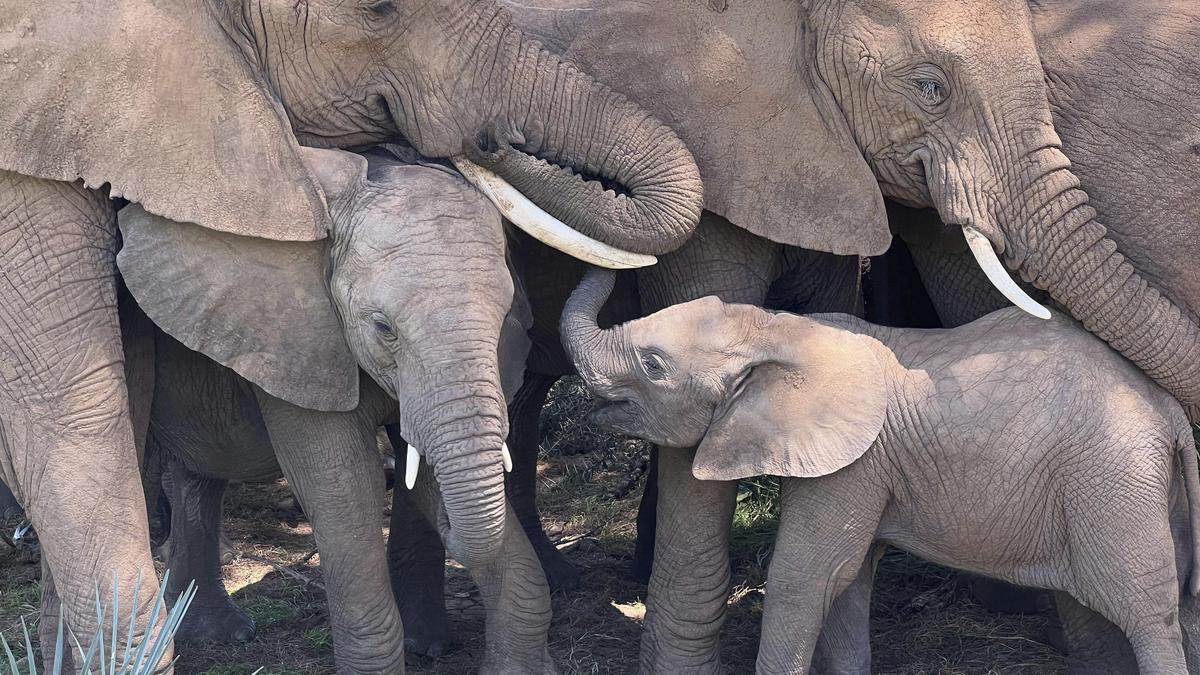
Study shows elephants might call each other by name
The Hindu
Could it be that elephants address each other by the equivalent of a name? A new study involving wild African savannah elephants in Kenya lends support to this idea
Over the years, researchers who study elephants have noticed an intriguing phenomenon. Sometimes when an elephant makes a vocalization to a group of other elephants, all of them respond. But sometimes when that same elephant makes a similar call to the group, only a single individual responds.
Could it be that elephants address each other by the equivalent of a name? A new study involving wild African savannah elephants in Kenya lends support to this idea.
The researchers analyzed vocalizations - mostly rumbles generated by elephants using their vocal cords, similar to how people speak - made by more than 100 elephants in Amboseli National Park and Samburu National Reserve.
Using a machine-learning model, the researchers identified what appeared to be a name-like component in these calls identifying a specific elephant as the intended addressee. The researchers then played audio for 17 elephants to test how they would respond to a call apparently addressed to them as well as to a call apparently addressed to some other elephant.
The elephants responded more strongly on average to calls apparently addressed to them. When they heard such a call, they tended to behave more enthusiastically, walk toward the audio source and make more vocalizations than when they heard one apparently meant for someone else.
The study's findings indicate that elephants "address one another with something like a name," according to behavioral ecologist Mickey Pardo of Cornell University and formerly of Colorado State University, lead author of the study published on Monday in the journal Nature Ecology & Evolution.
"Certainly, in order to address one another in this way, elephants must learn to associate particular sounds with particular individuals and then use those sounds to get the attention of the individual in question, which requires sophisticated learning ability and understanding of social relationships," Pardo said.

After a long, tiring day all we want is to jump right on our cosy beds and rest comfortably on our soft, fluffy pillows, right? Pillows are not quite appreciated as much as electric cars or air-fryers, for instance. Pillows are a wonderful man-made creation that has improved the lives and sleep of people across the globe. Did you know ages ago people used to rest their heads on a HARD ROCK? So how did humans go from sleeping on stones to cosy, fluffy and soft pillows today? Let’s get into the origin of your everyday pillows!

As the November 30 deadline nears for installing vehicle location tracking devices (VLTD) and emergency panic buttons in public service and nationally permitted goods vehicles in Karnataka, transport unions representing cab, bus, and truck operators are urging the government to reconsider the mandate. They argue that the high cost of these devices and a lack of awareness have made it difficult for many vehicle owners to comply with the requirement.









